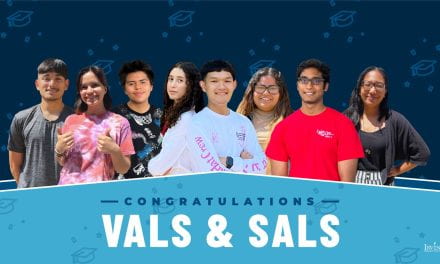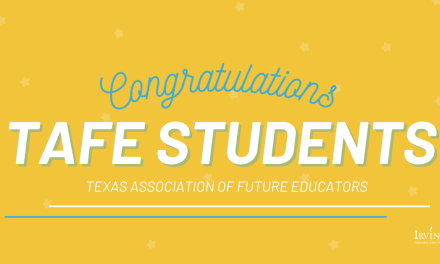Earlier this month, Irving ISD celebrated the 100th day of in-person classes. As a tradition, students and teachers dress like they’re 100 years old or as someone older. Seventh-grade Crockett Middle School teacher Kirsten Bosilikwa decided to celebrate by dressing up as Ruby Bridges, the first African-American child to desegregate schools in the state of Louisiana.
“I knew the 100th day of school was approaching as well as Black History Month, so I wanted to wear clothes from an older time period while highlighting someone that made a mark in black history, education and my life,” says Bosilikwa.
By choosing this creative way to celebrate 100 days of school, she was able to create a dialogue amongst her students to discuss Ruby Bridges and cases like Brown vs. Board of Education.
Ruby Bridges was born in 1954, just three months before Brown vs. Board of Education which declared the process of separating schools for black and white children unconstitutional. However, states were still resistant to desegregation. It wasn’t until 1960 that Bridges made history in Louisiana. “There has definitely been progress since then,” says Bosilikwa. “Now students are able to learn with their peers regardless of their color.”
When speaking about her seventh graders at Crockett, she speaks highly of their acceptance of their classmates. “They accept their peers for who they are, and they don’t treat their classmates differently despite differences they each have,” she says. “We can learn a lot from this generation of kids.”
Bosilikwa has wanted to be an educator since she was 4 years old, however, she didn’t accept the calling until 2015.
“I want to help students become great citizens for our world,” says Bosilikwa. Like Ruby Bridges, she wants to leave her mark on the world as well, but through her students. She wants to teach them more than seventh-grade math. She wants to teach them life lessons that they can take throughout their lives. Through culturally relevant teaching, she’s able to accomplish this.
“Being culturally relevant is about culture students can relate to,” she says. “When they can connect to it, they understand the content so much better and are more engaged.”
She wants to be sure her students leave her classroom excelling in math, but also knowledgeable about black history and opportunities at Historically Black Colleges and Universities (HBCUs), as well as successful people that have attended them.
“I want them to know that they can reach the same heights, no matter their race,” says Bosilikwa.





